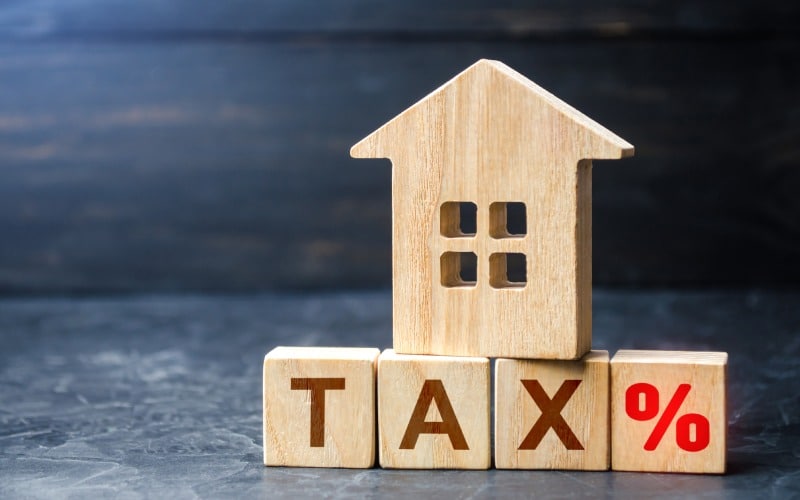Effective in 2023, the government has implemented an anti-flipping rule for residential housing, with the goal of maintaining more affordable housing for buyers. Flipping is a tactic of purchasing residential property and reselling it soon afterwards for a profit.
The new rule says that if you sell a property within 12 months, the profit you make is seen as business income, not as a capital gain and is not eligible for the Principal Residence Exemption. Simply put, if you buy a home and sell it within 12 months, you cannot use your Principal Residence Exemption and will be taxed on the proceeds from the sale.
What Changed For 2023
Property sold within 12 months is considered to be property flipping, with certain exceptions. Profit from property flipping is treated as business income, subject to full taxation. This means it doesn’t benefit from the 50-percent capital gains inclusion rate or the Principal Residence Exemption. As business income, the proceeds of the sale would be 100% taxable.
Even if the property was used as a personal residence and owned for longer than a year, you will have to report the sale of a home.
Exceptions
There are some potential exceptions to this rule. As the affected taxpayer, you may be exempted if one of the following situations led to your property sale or move:
- Death of a close relative (or your death)
- A close relative moves in with you or you move in with a relative, such as when a child is born, adopted, or when an elderly parent needs care
- End of a marriage or common-law partnership where you and your partner have lived apart for at least 90 days before separating your assets
- Threat to your safety or a relative’s
- Serious disability or illness, affecting you or a close relative
- Involuntary job loss
- Relocating for work, employment, or full-time education
- Insolvency
- Destruction or expropriation of your property
Again, all sales do need to be reported on your tax return.
Losses
You should also be aware that if you sold a property within the 12-month period at a loss, such losses are deemed to be nil. You can’t automatically claim this as a loss.
Non-Flipped Property: Business Income or Capital Gains
If your property isn’t considered to be flipped, either because of a life event exception or because you owned it for at least a year before selling it, then whether the profit from selling it is taxed as business income or capital gain would depend on the specific circumstances of the sale.
Determining whether the sale of a property counts as a capital gain/loss or business income/loss can be complex. Various factors will be considered. This includes your intention, the location and zoning of your property, the nature of your business, whether there are partners or investors with an interest in the property, use of borrowed money and financing terms, length of ownership, reasons for selling, and any past dealings in real estate you or any other stakeholders may have had.
This is significant, as it affects how much you will be taxed. When a property sale is considered a capital gain, only 50% of the profit is taxable, so typically, this is preferred.

Examples of Intentions
Buying to Assign
When you participate in an assignment sale, you transfer your contract of purchase and sale to another buyer. Any profit made from this assignment is considered business income, which is taxable in the year of assignment. If you sell a new build through assignment within 365 days of ownership, the profit, minus HST, is fully taxable.
Buying to Flip
Here, you purchase a property, often renovate it, then sell it for profit. Even if you lived in the property during renovations, it doesn’t qualify for the principal residence exemption because your intention was always to sell for profit. Any profit from flipping is treated as business income.
Buying to Build and Sell
This is similar to flipping, but involves purchasing land to build or significantly renovate a property for resale. Again, any profit is considered business income, as the intention was always to sell for profit.
Buying for Rental Income
When purchasing a property for rental purposes, any profit from its sale is treated as a capital gain.

Personally Owned vs. Business Owned Property
If you own a property personally, any profit you make could be taxed at a high marginal rate of up to 53.5% (Ontario). However, if the property is held in a corporation’s name, the profit is taxed at a lower rate of 12.2% (Ontario) as active business income.
If you have sold a residential property in 2023 after owning it for less than 12 months, whether a principal residence or a business property, and you have questions about potential tax consequences, PharmaTax can help.
- With The New Capital Gains Tax Changes for 2024, What are the Best Places to Tax Shelter My Money? - November 1, 2024
- Business Overhead Insurance: What it is & Why You Need It - October 18, 2024
- How Long Do I Need to Keep Receipts? - October 5, 2024


